A Starfish Walking Back To The Water.

A starfish walking back to the water.
More Posts from Llamaslikesciencetoo and Others






Shark finning is the gruesome act of catching sharks, slicing off its fins, then throwing the body back into the ocean to drown or bleed to death. Without fins, sharks cannot balance or move, so it slowly sinks to the bottom of the ocean, where it suffocates or bleeds to death.
Sharks kill only 6 people each year. Over 100 million sharks are killed yearly, and 11,480 hourly. Because of this, shark populations are plummeting very, very fast. Some shark species are close to extinction, with some populations being dropped by 99%.
Sharks are greatly misunderstood, and are absolutely crucial to healthy ocean ecosystems. But some species of shark are in danger due to hunting and over fishing. There’s a lot to be done to make sure these vital predators have a secure position in the oceans. As a starting point, here are seven small ways you can help the cause.


TheStare by © wildernessprints.com
Wild adult lynx in Banff National Park
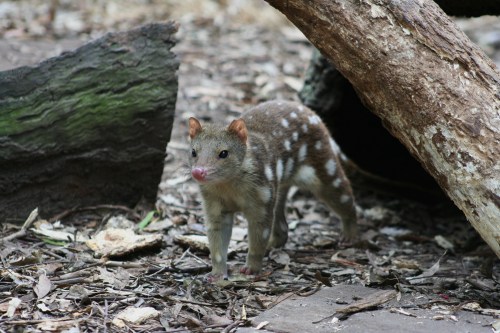
Quoll Returns to the Australian Mainland After 50 Years
On March 1st, Fourteen eastern quolls were released into Australia’s mainland to rebuild their population because of a team’s effort from Australian National University. Since the 1770′s, quoll numbers have been declining due to many dangers such as habitat loss and predators that include foxes, wild dogs, and cats.
The quoll is carnivorous and feeds on smaller mammals, small birds, lizards, and insects. Until now, it has inhabited inland parts of Australia. There are six current species(pictured is the tiger quoll). The larger of which live longer than the smaller, with an average life span of two to five years.
So, whats the point of this translocation? Well, quolls are important to the functioning of the mainland ecosystem where they regulate the prey species. The released quolls will have radio tracking collars to be monitored.
Fact about the quoll: Male and female quolls only meet for mating, and male den territories often overlap female territories. However, they have communal toilets where they may have up to 100 droppings in them.
Photo by: joshua cunningham via Flickr



The Silent Flying of an Owl.
The video shows how effortlessly an owl fly’s compared to other bird species.
A pigeon that has a relatively large body and small wings needs to flap furiously to produce enough lift. A falcon has large wings that move more aggressively so the bird can gain much faster speeds.
Both birds create large turbulence in the air and noise as a result. Comparatively, the owl is the perfect night time hunter, silently flying through the sky.
Inside the Rugged Lives of Mongolia’s Nomads
Filmmaker Brandon Li captures life in western Mongolia in his film Nomads of Mongolia. Watch the nomadic Kazakh people train eagles to hunt, herd yaks, and race camels in this visually stunning short.
By: National Geographic. Donate to the National Geographic Society
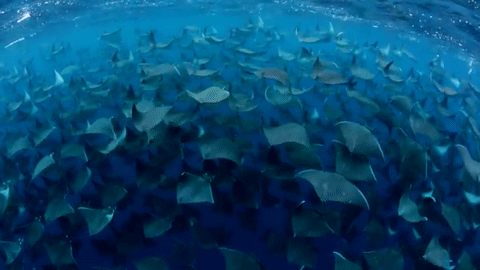
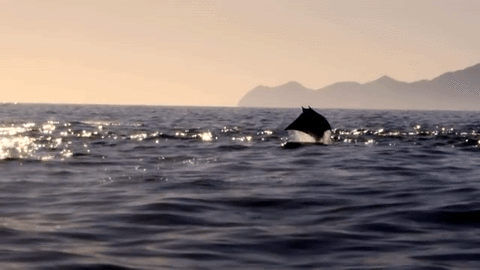
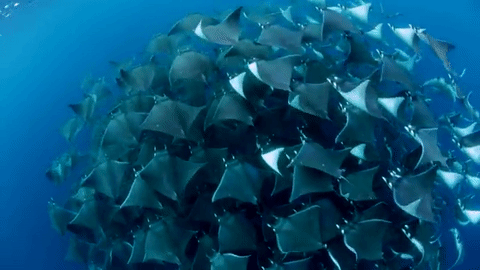

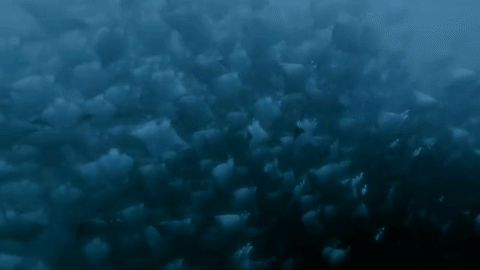
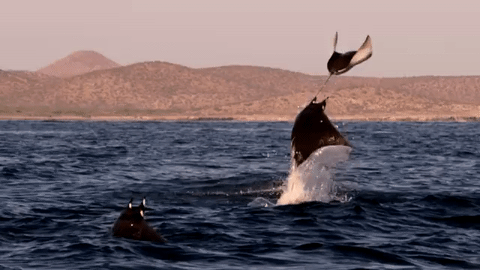
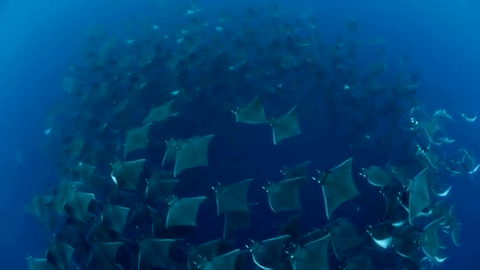
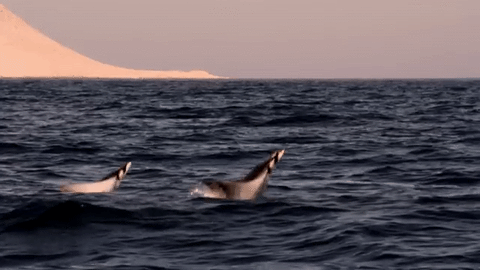
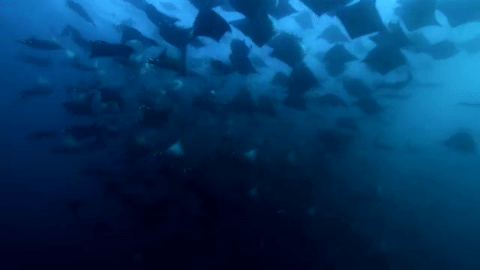
closely related to sharks but with long, flat bodies and wing-like pectoral fins, mobula rays are ideally suited to swooping through the water - here off the gulf of california - yet seem equally at home in the air, so much so that they have earned the name “flying rays”. mobula rays can reach heights of more than two metres, remaining airborne for several seconds.
mobula rays are quite elusive and difficult to study, so biologists are not quite sure why they jump out of the water. theories vary from a means of communication, to a mating ritual (though both males and females jump), or as a way to shed themselves of parasites. they could also be jumping as a way of better corralling their pray, as seen with them swimming in a circular formation.
what is known about mobula rays is that they reach sexual maturity late and their investment in their offspring is more akin to mammals than other fishes, usually producing just a single pup after long pregnancies, all of which makes them extremely vulnerable to commercial fishing, especially as a species that likes to come together in large groups.
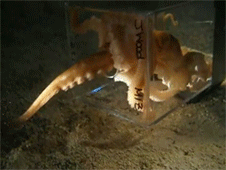
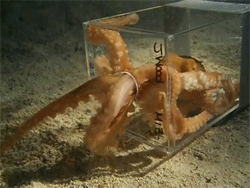




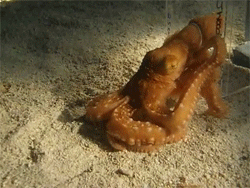
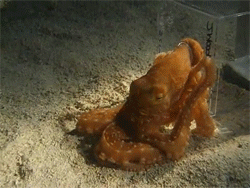

I meant to say “neat” because it’s the first time I’ve seen a toad in person with its croak sac and I got excited
Too excited

It’s been years since I first learned about it and I still can’t get over the fuckin fact that box jellyfish have EYES. JELLYFISH WITH EYES. THIS JELLYFISH IS LOOKING AT YOU. THE THINGS THAT LOOK LIKE EYES ARE ITS EYES. IT HAS THEM. A JELLYFISH.
-
 annita89dybo7v7h liked this · 7 months ago
annita89dybo7v7h liked this · 7 months ago -
 humanityinmotion reblogged this · 8 months ago
humanityinmotion reblogged this · 8 months ago -
 eagleflieswiththedove liked this · 1 year ago
eagleflieswiththedove liked this · 1 year ago -
 bloodstainedlovers liked this · 2 years ago
bloodstainedlovers liked this · 2 years ago -
 neighday liked this · 2 years ago
neighday liked this · 2 years ago -
 methclub-qnlcytew liked this · 2 years ago
methclub-qnlcytew liked this · 2 years ago -
 christabelq liked this · 2 years ago
christabelq liked this · 2 years ago -
 semiotomatics liked this · 2 years ago
semiotomatics liked this · 2 years ago -
 low-level--00 reblogged this · 2 years ago
low-level--00 reblogged this · 2 years ago -
 low-level--00 liked this · 2 years ago
low-level--00 liked this · 2 years ago -
 badamts liked this · 2 years ago
badamts liked this · 2 years ago -
 unethical-gender liked this · 2 years ago
unethical-gender liked this · 2 years ago -
 exceptionerroralex liked this · 2 years ago
exceptionerroralex liked this · 2 years ago -
 tired-beefly liked this · 2 years ago
tired-beefly liked this · 2 years ago -
 tacochippy reblogged this · 2 years ago
tacochippy reblogged this · 2 years ago -
 tacochippy liked this · 2 years ago
tacochippy liked this · 2 years ago -
 justremainingmyself liked this · 2 years ago
justremainingmyself liked this · 2 years ago -
 kslhnkn liked this · 3 years ago
kslhnkn liked this · 3 years ago
Mainly interested in ecology, but also the entirety of science.
179 posts